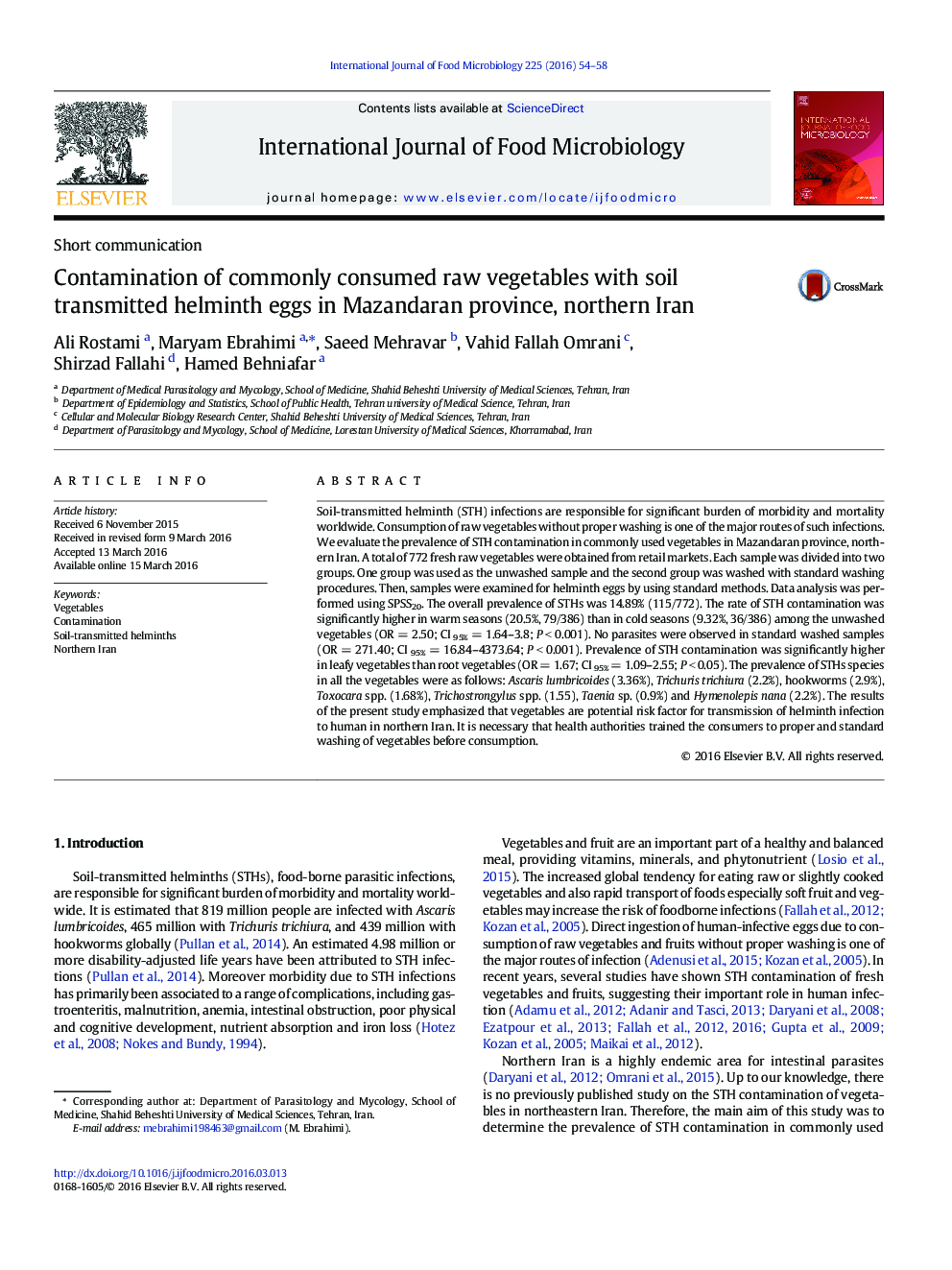| کد مقاله | کد نشریه | سال انتشار | مقاله انگلیسی | نسخه تمام متن |
|---|---|---|---|---|
| 4366305 | 1616558 | 2016 | 5 صفحه PDF | دانلود رایگان |
• We evaluate the prevalence of Soil-transmitted helminths in vegetables in northern Iran.
• The overall prevalence of STHs was 14.89% (115/772).
• The rate of STH contamination was associated with climate changes.
• The rate of STH contamination was associated with washing procedures.
• No parasites were observed in standard washed samples.
Soil-transmitted helminth (STH) infections are responsible for significant burden of morbidity and mortality worldwide. Consumption of raw vegetables without proper washing is one of the major routes of such infections. We evaluate the prevalence of STH contamination in commonly used vegetables in Mazandaran province, northern Iran. A total of 772 fresh raw vegetables were obtained from retail markets. Each sample was divided into two groups. One group was used as the unwashed sample and the second group was washed with standard washing procedures. Then, samples were examined for helminth eggs by using standard methods. Data analysis was performed using SPSS20. The overall prevalence of STHs was 14.89% (115/772). The rate of STH contamination was significantly higher in warm seasons (20.5%, 79/386) than in cold seasons (9.32%, 36/386) among the unwashed vegetables (OR = 2.50; CI 95% = 1.64–3.8; P < 0.001). No parasites were observed in standard washed samples (OR = 271.40; CI 95% = 16.84–4373.64; P < 0.001). Prevalence of STH contamination was significantly higher in leafy vegetables than root vegetables (OR = 1.67; CI 95% = 1.09–2.55; P < 0.05). The prevalence of STHs species in all the vegetables were as follows: Ascaris lumbricoides (3.36%), Trichuris trichiura (2.2%), hookworms (2.9%), Toxocara spp. (1.68%), Trichostrongylus spp. (1.55), Taenia sp. (0.9%) and Hymenolepis nana (2.2%). The results of the present study emphasized that vegetables are potential risk factor for transmission of helminth infection to human in northern Iran. It is necessary that health authorities trained the consumers to proper and standard washing of vegetables before consumption.
Journal: International Journal of Food Microbiology - Volume 225, 16 May 2016, Pages 54–58
